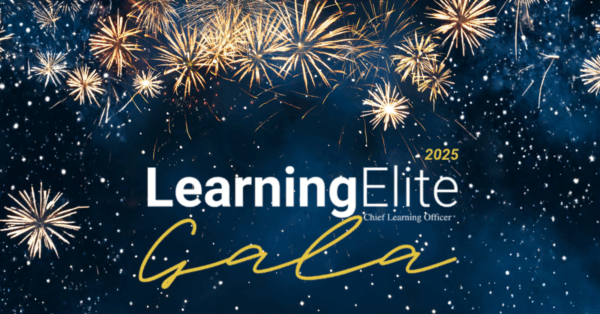There are many things experienced learning executives wish they’d known earlier in their careers, and a desire to share these lessons with younger colleagues in the learning profession is common.
Pat Crull, group vice president and chief learning officer for Time Warner Cable; Lisa Doyle, vice president of learning and development for Lowe’s Cos. Inc.; and Tamar Elkeles, chief learning officer and vice president of learning and development at Qualcomm, shared their thoughts on passion, patience and perseverance with current and future learning leaders.
Chief Learning Officer: Is there an ideal career path for a learning executive or does it develop organically and thus will be different for each person?
Tamar Elkeles: Each person takes a different path, so there is no right way or wrong way. There are people from academia, people from business, people who come from the training organization or from a vendor organization. There’s no specific right way to become a CLO. It’s more about hard work, perseverance and crafting your skill set. That’s part of the diversity of the role; people come from different industries and backgrounds and have different experiences. That’s what makes the CLO role so vibrant.
I started out working with autistic kids. I have a degree in human development and psychology as well as a master’s and Ph.D. in organizational psychology. My education involved a lot of work around learning, teaching autistic children to speak, teaching them appropriate play. Although what I’m doing today is quite different, in some ways it’s similar because I’m trying to change behavior, motivate people to be the best they can be, and reward and reinforce the behaviors we want in the organization.
Lisa Doyle: I forged my own path and my career evolved organically. I pursued an undergraduate degree in business administration and then I received an MBA. Prior to my learning role, my career focused on the business operations side. I chose to pursue a role in learning and development as a result of my personal passion for helping people succeed. A career in learning and development allows me to fulfill my passion and make a meaningful difference in the lives of others every day.
Whatever path you take, there are some key competencies you need to succeed as a CLO. You need to have business acumen and understand how to run a business. You also need learning agility to immediately apply what you’ve learned, as well as emotional intelligence and interpersonal skills to be self-aware and build important relationships. It’s also been helpful for me to work in roles outside of the HR function to get a broader enterprise perspective.
Pat Crull: I have seen successful CLOs take quite different paths to get the top learning jobs. If someone rises to a leadership position having been mostly in the learning area throughout their professional careers, it behooves them to develop business acumen. It focuses the CLO on performance and outcomes that are important to the organization, and it helps CLOs translate learning into business imperatives that appeal to and are understood by the decision-makers and influencers in their organization. A second reason to gain a solid business understanding is it helps to use metrics and perform impact analyses to provide evidence of value that is more easily accepted and valued by the organization.
It goes without saying that if you are a learning leader who grew up on the business side, you need to know and understand the world of learning. Either path can work — coming from the learning side or the business side. I am retiring in January, and my successor is someone who rose through the ranks of operations and finance. She came to the learning world about a year ago, and she is going to be absolutely outstanding. I say to my team all the time, ‘The best is yet to come.’
Are there specific things you have learned along the way that have especially helped you?
Elkeles: Many of the most important things I’ve learned weren’t from any formal study but rather from experiences within the company that helped shape my thinking. Never be afraid to try something that you don’t immediately know how to do. Being resourceful is critically important, as is learning from other companies and other industries, because that enables you to recognize and incorporate best practices into your learning organization.
Doyle: It has served me well to have a diverse network of individuals within and outside of my field. Whether I was working in government or in industry, I made it a point to have strong connections in academia, in government and in industry. You gain valuable diversity of thought and experience from a broad network.
Crull: An important insight that has helped me is to acknowledge my dependence on others. I once startled an audience when I introduced myself as their new chief learning officer by saying, ‘My name is Pat Crull. I am very good at what I do, but I will fail without you.’ What I meant was that we fail miserably if we try to act without the alignment and synergy that comes from having partners in the business: in operations, IT, marketing and in the C-suite. The plain truth is I needed to be known, trusted and respected. I needed to listen, understand and appreciate others in order for the work of our team to have a hearing. I used to work for McDonald’s Corp., and I love Ray Kroc’s mantra, which was, ‘None of us is as good as all of us.’
If you could give your younger self some advice, what would it be?
Elkeles: Persevere. Have a ‘can-do’ attitude; be resourceful and take initiative. Embrace new experiences and projects. It’s important to push yourself outside of your comfort zone. You need to challenge yourself and others and never settle for mediocrity.
I’d also tell myself and others to find an organization that has an innovative environment and supports learning from mistakes. I’ve been fortunate to work in a company where I’ve had a very big runway, a lot of trust and strong relationships that have given me a platform to do something that hasn’t been done before. That’s the support you need in an organization — an opportunity to take risks.
Doyle: Follow your heart. Pursue a career that you love. I would also say, don’t go too fast. Have patience. You will learn important lessons and gain valuable experience whether you’re going forward, backward or sideways to achieve your career goals.
Crull: The first important insight is that without passion for what I do, I would have found little joy in my world of work. Throughout my career I was much more quickly forgiven for mistakes committed out of enthusiasm than for a perfunctory approach to perfection. There is a quote I love which is sometimes attributed to Nelson Mandela and sometimes to the contemporary author Marianne Williamson, but it goes: ‘Your playing small does not serve the world.’ Learning leaders who don’t take risks or who play it small do not serve their organizations or our profession well. So having passion is one point.
Another is that when I began my career, I approached it as though it were a sprint. I threw everything into it and kept expecting that if I did this, next month or next year I would be caught up. I would understand it all. That never happens. Our career is a marathon. We have to approach it in ways that cause us to keep growing, mentally and physically — to recognize we don’t ever ‘arrive’ and can stop.
Finally, I have learned through the years to live thankfully — for my plain good luck and for the good fortune to have worked in this profession. We are in an occupation that can profoundly change an individual. And simultaneously we can impact the course of entire organizations and industries.
Craig Mindrum is CEO of Mindrum Northstrong, a consultancy specializing in talent, change, leadership and ethics. He can be reached at editor@CLOmedia.com.
THREE PLACES TO LEARN TO BE A CLO
By Brandon Hall
“The successful CLOs that I know became CLO through years of on-the-job experience, and a lot of hard work,” said Kevin Oakes, CEO of the Institute for Corporate Productivity, a human resources research company. “In the end, those who achieve the CLO position really understand what works from a program standpoint and really understand how to make the business more competitive and more productive long term.”
That said, several sources can provide meaningful support for those seeking the CLO spot, or for those who are already there.
Academia: The University of Pennsylvania offers the CLO Executive Doctoral Program. Faculty from the Graduate School of Education and the Wharton School provide a balance of theory and practice. The program takes three years and includes a dissertation. There are two weeks on campus per semester, with online assignments in between.
Around the globe there are many bachelor’s and master’s degree programs for training and instructional design, as well as for human resources, organizational psychology and industrial psychology.
ASTD: The American Society for Training & Development Competency Model is valuable as a road map of expertise in 10 areas covering all learning and development essentials. ASTD’s Certified Professional in Learning and Performance credential is worthwhile, requiring knowledge in each area plus a work product. Like studying for any credential, there are resources available to aid in learning the content. CLOs are expected to have mastery of these areas, if not the certificate per se.
Peer-based groups: These membership groups are among the most valuable resources available to practicing CLOs. They expand one’s network and provide regular multiday working sessions with CLOs from similarly ranked companies. The groups typically vote on discussion topics for upcoming sessions as well as on potential new members. Three of the top peer-based groups are:
• Institute for Corporate Productivity: Oakes’ firm conducts valuable research, which is all listed on the company website. It is also a primary source of research for ASTD.
• The Conference Board: The Conference Board began convening executive groups in 1916. Today, groups of 30 members focus on topics related to L&D and talent management. The group also conducts extensive research on people and organizations under the direction of former CLO Rebecca Ray. Findings are disseminated at meetings and webcasts, and via the Web portal Human Capital Exchange with participation from Harvard, McKinsey & Co. and others.
• Best Practices Institute: Louis Carter founded this company to provide working groups, best and next practices, and a variety of expert, innovative solutions. Its emphasis is on successful implementation of initiatives, drawing from organizational development practices such as Open Space, Future Search and more.
Brandon Hall is a veteran learning analyst and founder of Brandon Hall Group. He can be reached at editor@CLOmedia.com.














